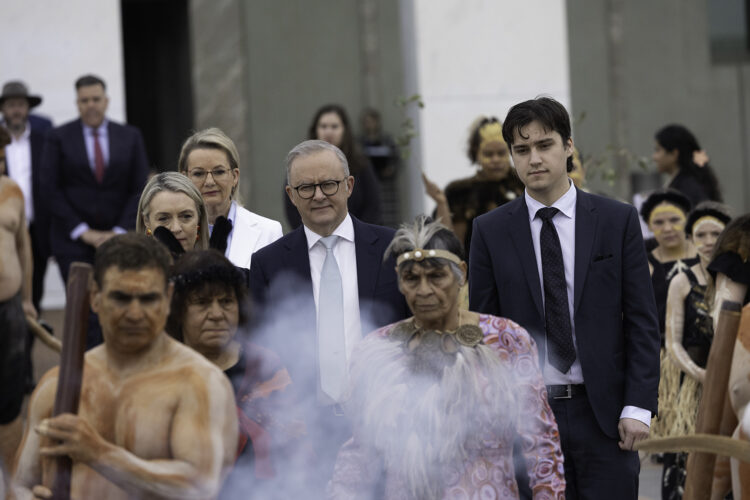International news agency AFP warns the last Palestinian reporters in Gaza will die without immediate intervention
While Sussan Ley and the Coalition can’t bring themselves to support the bare minimum – a call for Israel to end its war on Palestine and allow the free flowing of aid, the AFP journalists’ association has released a statement that journalists in Palestine employed by the agency may die from starvation.
It is the first time they have ever had to issue this sort of statement.
Journalist Catherine Norris Trent translated the statement, published by the Société des Journalistes, or SDJ (Editorial Committee) of AFP and backed by AFP management, from French to English.
Without immediate intervention, the last reporters in Gaza will die.
AFP has been working with one writer, three photographers and six videographers, all freelance, in the Gaza Strip since its staff journalists left in 2024.Along with a few others, they are now the only ones left to report what is happening in the Gaza Strip. The international press has been banned from entering the territory for nearly two years.
We refuse to watch them die.
One of them, Bashar, has been working with AFP since 2010, first as a fixer, then freelance photographer, and since 2024, as lead photographer. On July 19th he managed to post a message on Facebook: “I no longer have the strength to work for the media. My body is thin and I can’t work anymore.”
Bashar, 30, works & lives in the same conditions as all Gazans, moving from one refugee camp to another under Israeli bombings. For more than a year he’s lived in utter destitution, working at extreme risk to his life. Hygiene is a major issue for him, with recurring bouts of severe intestinal illness.
Since February, Bashar’s been living in the ruins of his home in Gaza City with his mother, four brothers & sisters and the family of one of his brothers. Their house is devoid of any furnishings, except a few cushions. On Sunday morning, he reported that one of his brothers had “fallen, due to hunger.”Even though these journalists receive a monthly salary from AFP, it’s no longer enough to buy food, or they have to pay completely exorbitant prices. The banking system has collapsed, and those who exchange money via online bank accounts charge a commission of up to 40%.
AFP no longer has the ability to provide them with a vehicle and there is not enough fuel to allow these journalists to travel for their reporting. Driving a car means becoming a target for Israeli airstrikes. AFP reporters therefore travel on foot or by donkey cart.
Ahlam, located in the south of the enclave, is holding on “to testify” as long as she can. “Every time I leave the tent to cover an event, do an interview or document a story, I don’t know if I’ll come back alive.”
Her biggest issue, she confirms, is the lack of food and water.
We are watching their situation get worse. They’re young but their strength is leaving them. Most are no longer physically able to get around the enclave to do their work. Their heartbreaking cries for help are now daily.
For the past few days, we have only received very brief messages from them, when they have the strength to send any. Their courage, considered heroic by the rest of the world, is now their only hope of survival.
We may hear about their deaths at any moment, and this is unbearable.
